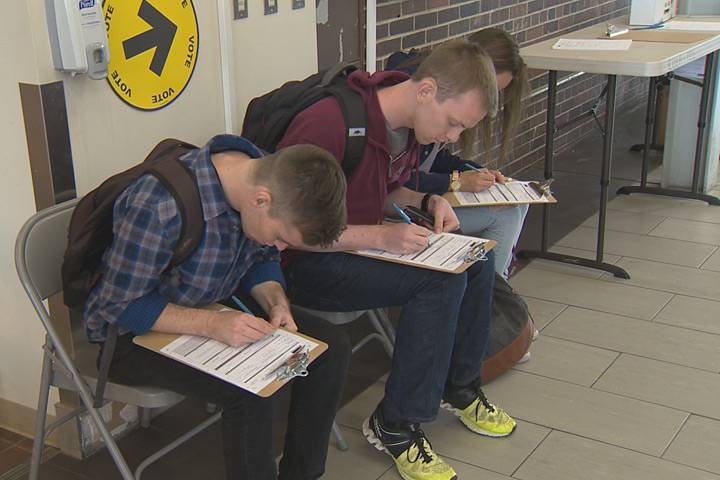Throughout the campaign, the media focused on the voter turnout for one particular demographic: Youth. A Nanos vote study of the 2011 election found that if more than 38 per cent of youth had voted in 2011, the Canadian government would have been completely different. Clearly youth have the power to change election results. In the last few weeks, Canadians between the ages of 18 and 35 experienced a massive push from political leaders, prominent media figures, and McGill professors to vote. But in this campaign, attempts to engage with youth voters were haphazard and superficial, which undermined the value of the youth vote.
Political parties have made their stance on the youth vote very clear: If youth don’t care enough to vote, then they will gear their political platforms towards demographics that will. As a result, youth issues have been remarkably underfunded. For example, Prime Minister Stephen Harper promised to increase training to provide more employment opportunities for youth, but ultimately fell short of his promise by $100 million last year. Youth programs are simply not prioritized at the federal level.
Centering on topics such as student debt and youth unemployment rates, the party leaders came out with formulated plans on how to tackle issues specific to young people. Political parties—particularly the Liberals and NDP—have been scrambling to find something that will appeal to left-leaning youths, who account for a large portion of Canada’s progressive vote. NDP leader Mulcair recently announced his plan to dedicate $200 million to raise youth employment, and Liberal leader Trudeau made a counter offer, pledging almost $1.5 billion over four years to youth employment programs. Part of this may have been a result of a massive anti-Harper strategic vote push in the election, but it also is indicative of the underlying truth that youth are treated as distinct from the rest of the population. While these policies are tailored towards youth, there has been an unwillingness to engage youth in issues of national salience.
Regardless of whether politicians are responding to articulated demands from the youth or seeking to inspire partisan affiliations, these offers are somewhat disingenuous considering the perceived need to secure the youth vote. Born out of competition between progressive parties, voters are forced to question whether these promises possess any real efficacy, or are simply ploys to boost youth support.
For the first time, Elections Canada literally brought the ballot box to the students by setting up offices on various university campuses. While making voting accessible is a necessary action, placing the booth in front of voters isn’t enough to make them want to cast a ballot, nor does it in any way stop the voter from using the excuse “I’m not informed enough,” or, “I’m still not sure which party I identify with and support yet.” That said, while it is young voter’s responsibility to inform themselves on political matters, it is ultimately the political parties’ responsibility to give youths a reason to vote in the first place. In fact, this failure to actually engage and converse with youth voters only fuels the claim that youth are apathetic towards political issues, and that their opinions do not matter.
On one hand, it makes sense for political leaders to focus their energies on other issues, such as immigration laws or balancing the budget, as these appeal to a larger electorate. But politicians should not focus only on those who they believe will win them seats—they should have the best interests of as many sectors of society as possible in mind. National policies should not exclude the interests of the youth. There is therefore a distinction between youth issues and the youth voice. Young people have a stake in the future of the nation, so it is simply poor politics to underestimate their influence. The young population has the power to determine political outcomes, and will comprise the next generation of political actors. The new government must bear this in mind as it begins to deliver on its promises.










